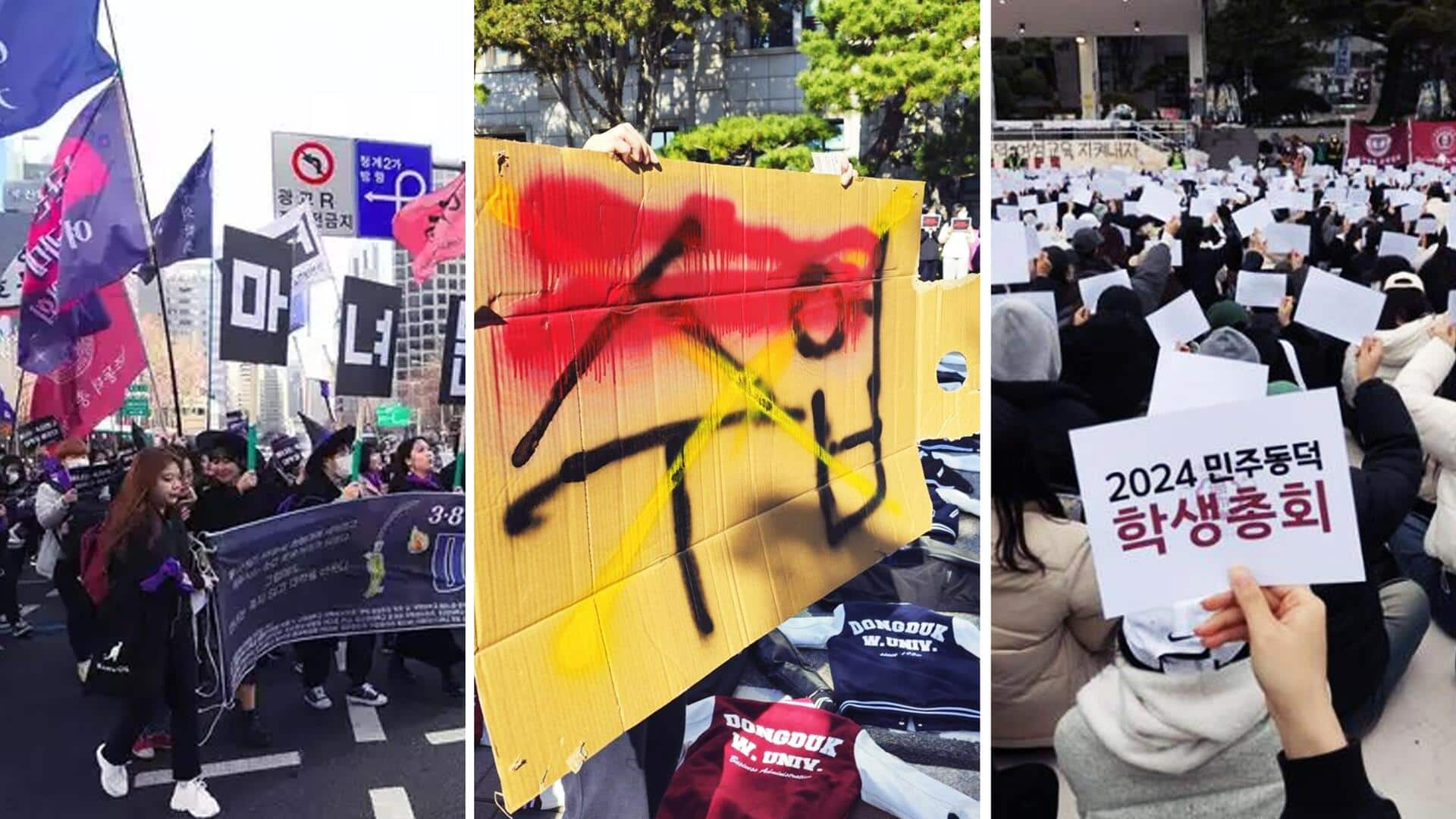
South Korean women's university protests over admission of male students
What's the story
Dongduk Women's University in Seoul, South Korea, has been at the center of protests since November 11 over plans to admit male students. The university was founded to empower women in a patriarchal society. The sit-in protest started when students occupied the main building and blocked access to classrooms, forcing classes online and resulting in the cancelation of a job fair.
Protest motives
Protests highlight concerns over future of women-only spaces
The university administration suggested admitting male students to some departments, citing practical needs for male actors in performing arts. However, students argue that this decision was taken without their input. "We'd rather perish than open our doors," reads one protest slogan. The protests have since spiraled into a wider clash over the future of women-only spaces in South Korea, a country grappling with gender equality issues.
Equality index
South Korea's gender equality and safety concerns
South Korea is ranked 94th out of 146 countries in gender equality, according to the World Economic Forum. Women occupy only 20% of parliamentary seats and constitute a mere 7.3% of executives at major companies. Yoonkyeong Nah, a professor at Yonsei University, says young Korean women feel unsafe in public spaces over issues such as illegal filming and stalking.
Political repercussions
University's response and political fallout of protests
A partial agreement allowed classes to resume after co-education discussions were temporarily suspended. However, student leaders demand a complete withdrawal of the co-education plans. University president Kim Myung-ae warned of "resolute action" against what she called illegal protests. The protests have become a political battleground—with conservative politicians criticizing the students' actions and opposition politicians accusing conservatives of using the protests to distract from political issues. The protests have also ignited an anti-feminist backlash online, threatening to expose protesters' personal information.